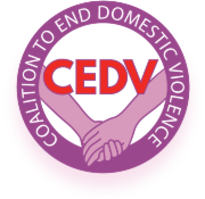Istanbul Convention: Threat to Human Rights
The EU Charter of Fundamental Rights is the foundation of the policies of the European Union, and of European society itself. But the EU Convention on Preventing and Combating Violence against Women, also known as the Istanbul Convention, represents a historic threat to the human rights of Europeans.
Nine years after the Convention came into force in 2014, Bulgaria, Czechia, Hungary, Latvia, Lithuania, and Slovakia have not ratified the flawed treaty:
- 2018: Bulgaria’s constitutional court ruled the treaty was unconstitutional
- 2019: Slovakia rejected the treaty
- 2020: Hungary’s parliament approved a declaration refusing to ratify the Convention
- 2020: Polish government announced its intention to withdraw from the Convention
- 2021: Turkey formally withdrew from the Convention.
- 2022:
- Turkey’s top administrative court ruled that the country’s withdrawal from the Convention was legal.
- Religious Zionism and Likud signed an agreement that Israel not become a party to the Istanbul Convention.
- 2023: United Kingdom rejected a proposal by Scotland to allow persons to change their gender without a medical diagnosis.
MARXIST MODEL
The Istanbul Convention is based on Marxist theory, which ascribes domestic violence to a power imbalance between men and women that arises from patriarchal beliefs. This idea is factually incorrect, for five reasons:
- Research conducted in Europe and internationally shows men and women engage in domestic violence at equal rates.
- Women in lesbian same-sex relationships experience especially high rates of abuse, compared to women in heterosexual relationships. It is difficult to understand how female-on-female domestic violence can be blamed on the “patriarchy.”
- Men are more impacted by false allegations than women. A recent survey found that in many countries, men are two to three times more likely than women to have been falsely accused of abuse.
- Men and women engage in partner aggression for a variety of reasons, including anger and jealousy. These are worsened by factors such as substance abuse, mental health problems, and undergoing a separation or divorce. Claiming that a “power imbalance” is the sole reason is a simplistic idea that ignores the many causes of domestic violence.
- Domestic violence programs based on the Marxist model, such as the so-called “Duluth Model,” have not been shown to be effective in reducing abuse.
The Marxist-inspired Istanbul Convention seeks to stereotype men as abusers and pit women against men. This model of domestic violence has been “heavily criticised as a theory that is ideologically based, rather than empirically supported. Indeed, hundreds of research findings exist that undermine the exclusivity of the gendered perspective,” according to researcher Nicola Graham-Kevan.
HUMAN RIGHTS CONCERNS
The Istanbul Convention has a number of serious human rights shortcomings:
1. Respect for Private Communications
The EU Charter of Fundamental Rights affirms the right to respect for “private and family life, home, and communications” (Article 7). But the Istanbul Convention violates the duty of pastors and therapists to assure professional secrecy:
“Parties shall take the necessary measures to ensure that the confidentiality rules imposed by internal law on certain professionals do not constitute an obstacle to the possibility, under appropriate conditions, of their reporting to the competent organisations or authorities if they have reasonable grounds to believe that a serious act of violence covered by the scope of this Convention, has been committed and further serious acts of violence are to be expected.” (IC Article 28)
2. Freedom of Thought, Conscience, and Religion
The Charter of Fundamental Rights affirms the rights to “freedom of thought, conscience, and religion” (Article 10) and to “freedom of expression” (Article 11). But the Istanbul Convention emphasizes that:
“Parties shall take the necessary measures to promote changes in the social and cultural patterns of behaviour of women and men with a view to eradicating prejudices, customs, traditions and all other practices which are based on the idea of the inferiority of women or on stereotyped roles for women and men.” (IC Article 12)
- No mention of the presumption of innocence.
- No requirement that accused persons face their accusers.
- Allows for the issuance of ex parte restraining orders, without the accused being present to defend themselves.
The IC seeks to criminalize a broad range of offenses (IC Articles 33, 34, 35, 36, 37, 38, 39, 40, and 53), some of which are better addressed by civil courts. Worse, the IC confuses the words “complainant” and “victim,” thereby shortchanging the defendant’s right to an impartial investigation and adjudication.
There is a certain irony that a treaty that claims to advance human rights, in fact serves to deny persons’ fundamental rights.
5. Subsidiarity
The Charter of Fundamental Rights calls for “due regard for the principle of subsidiarity and to the Member States only when they are implementing Union law” (Article 51). But the Istanbul Convention mandates a heavy-handed monitoring mechanism on Member States:
“The Group of experts on action against violence against women and domestic violence (hereinafter referred to as ‘GREVIO‘) shall monitor the implementation of this Convention by the Parties.” (IC Article 66)
The human rights concerns listed above are further highlighted by the fact that many countries that have ratified the Convention have filed Reservations indicating that the country does not plan to comply with certain provisions of the Istanbul Convention.
OTHER ANALYSES
Numerous analyses have been conducted of the Istanbul Convention by individuals and organizations:
Individuals:
- Francesco Agnello: A New ‘Gender’ Definition in International Law
- Stephen Baskerville: Istanbul Convention is Unnecessary, Dishonest, and Dangerous
- Marek Jan Chodakiewicz: Poland Should Get Out of Marxist Istanbul Agreement
- Mihaela Djorgova: The Istanbul Convention Divided Not Just the Parliament but the Whole Society
- David Heleniak: Shuttering the New Star Chamber: Toward a Populist Strategy Against Criminal Equity in the Family Court
- Dimiter Ivanov: Gender Identity: From the Yogyakarta Principles (2006) to the Istanbul Convention and Beyond
- Sean Parker: The Istanbul Convention – Legislating for Internationally Ratified Misandry
- Stan Soppner: Oops … Is this the Istanbul Convention? (video)
- Philipp Tanzer: The Istanbul Convention, A Feminist Trojan Horse
- David Walsh: Istanbul Convention, Gender, and State Silence
Organizations:
- ADF International: Council of Europe Convention on Preventing and Combating Violence against
Women and Domestic Violence and Possible European Union Accession to It - Holy See: Position Paper on the Question of Gender
- Ordo Iuris Institute: Istanbul Convention (various)
STUDIES SHOWING SIMILAR RATES OF DOMESTIC VIOLENCE
Fifteen community or large-scale surveys conducted in 19 countries throughout Europe reveal similar rates of physical domestic violence perpetration and victimization among males and females:
- Perpetration:
- Males: 13.4%
- Females: 15.6%
- Victimization:
- Males: 15.3%
- Females: 14.7%
The studies were conducted on adolescents, university students, and adults in the following countries: Belgium, Bulgaria, Denmark, Cyprus, Germany, Greece, Hungary, Italy, Lithuania, Malta, Netherlands, Norway, Poland, Portugal, Romania, Spain, Sweden, Switzerland, and UK/England/Great Britain.
Detailed study results can be viewed online.


